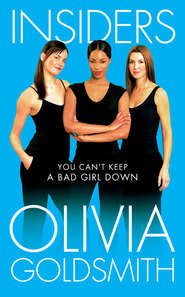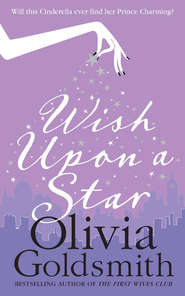По всем вопросам обращайтесь на: info@litportal.ru
(©) 2003-2025.
✖
Bestseller
Автор
Год написания книги
2019
Настройки чтения
Размер шрифта
Высота строк
Поля
“Amazing, isn’t it?” Frederick said. “And they built it in three years.”
The building was astonishing. It was, essentially, a full church built upon a full church. Although there was no dome, the double height of the two floors combined, built into and rising out of the hill of Assisi itself, made the whole deeply impressive. The rows of riblike flying buttresses were like the exposed bones of a fossil along the escarpment of the Assisi cliff. It was a breathtaking sight, and it brought Camilla great joy—the kind of joy that cannot be planned for or sought but that comes serendipitously. Suddenly she was flooded with it, nearly drunk with it, and it must have showed.
Camilla wished she could talk about it, could thank him and tell him how much the sight meant to her. But she wasn’t good with words—not unless she wrote them down. She hadn’t even been able to broach the subject of his intentions—whether Frederick expected her to sleep with him. She hated being so tongue-tied.
Maybe Frederick understood. “I’ll leave you here,” he said. “My room is next door.” Before she could say anything, he withdrew. She felt a momentary stab of guilt: It had so far been so easy. No embarrassing fumblings, no need for gentle explanations or—far worse—awkward struggles and recriminations. She was, apparently, free. No strings attached. Free to take in this beauty without having to bonk him. She had misjudged Frederick.
Tonight she felt herself among the privileged. On other day visits she had looked up and seen people on the many terraces and balconies of the Subiaso. She had known that it was not, as her mother surely would have put it, “for the likes of us.” But now it was for her. She smiled in the dark. Looking out at the view was like owning a wonderful painting. She tried to memorize the sight, so that she could recall it at will.
Just then a shutter door opened and, on a much smaller balcony, Frederick appeared. He waved. “Do you think you might consider relinquishing the view if I tempted you with dinner on the terrace below?” He gestured, and though she couldn’t see his hand in the increasing darkness, his white shirt cuff gleamed. She looked down. Two or three stories below was a vast piazza. She hadn’t noticed it because it was completely roofed with green leaves. Just below the verdant canopy she could glimpse the diners who were beginning to take their tables. “I have a reservation. I wanted to be sure we had a seat by the railing,” he told her. His head was cocked in that funny way of his—birdlike and pushed almost down to one shoulder. “Do you think you could stop drinking all this in and start eating instead?” His white teeth flashed in the darkness. She nodded, then realized he wouldn’t be able to see her gesture.
“Yes,” she called to him. “I’m starving. But aren’t you knackered?”
“What? Knackered? Sounds like something done to a horse.” She heard him laugh, and she blushed.
She always said the wrong thing. She probably sounded like a yob. “Tired,” she said, flustered. “I meant tired. Anyway, knock on my door when you’re ready. I’ll go down on you.” She realized then what she’d said and blushed furiously. “Go down with you,” she corrected.
“Well, I think I prefer the former, but I’ll do the latter,” Frederick laughed.
Perfect. He was genteel, and I throw in the smut! What a balls-up. Camilla wondered about Frederick again. He was certainly attentive, but so were so many homosexual men. And why else would he be traveling with his mother? But perhaps he was not gay. Nervously Camilla went back inside and only then realized the room was actually a small suite. The parlor was furnished in old but tasteless Italian furniture of the if-its-gilded-or-painted-it-must-be-bellisimo school. A small door led to the minuscule bedroom. There was only enough space there for a large bed painted with garlands of peonies and a huge matching wardrobe. But there were shutters that opened to a small balcony, similar to the one Frederick had stood on. Camilla looked from the balcony to the bed and realized that she could sleep tonight with the shutters open and wake up to a view unsurpassed in all of Umbría. She smiled, then forced herself to get down to business, washing up and dressing. She was just finishing up when she heard Frederick’s tap at the door. Grabbing a jumper to throw over her shoulders, she joined him in the hallway.
Camilla was charmed by the dining room—if a veranda covered with vines could be classified as a room. Once again, as in San Gimignano, she and Frederick were led to the best table, in the corner where the two railings met. The leafy roof rustled, and Camilla put the jumper around her shoulders.
“Cold?” Frederick asked. “Shall I give you my jacket?”
“No,” she told him, “it’s perfect.”
And it was. The meal was perfect, the view was perfect, and the wine was perfect. Despite her awkwardness, they talked about Saint Francis and Saint Claire and planned how they would spend the day tomorrow. The dining room buzzed pleasantly with the talk of couples and families enjoying themselves.
At last, when Frederick ordered an espresso, Camilla shook her head. It was too late in the evening for her to drink coffee, and she had never really grown to like it despite her years in America and Italy. She was a PG Tips girl, though in New York she’d gotten used to instant coffee. She’d never admit that was all she drank.
“I tell you what,” he suggested. “Why don’t we have dessert and my espresso on your veranda?” He turned to the waiter, who immediately nodded.
Oh no, Camilla thought. Now all of the messiness would begin. She should have known. She had no one to blame but herself. She got up, reluctantly, as Frederick held her chair. He took her arm just above the elbow, and they walked across the dining room. “They have a miraculous fruit sorbet that they serve in a hollowed-out frozen peach,” Frederick murmured. “I’ve ordered you one.”
Camilla nodded stiffly. Frederick walked very slowly, almost holding her back, his head cocked to the side in his habitual way. They entered the lift, and when they reached their floor, she led Frederick to her room. She fiddled with the big, ancient key but couldn’t get the door to open. Her hands were shaking. Gently, Frederick took the key from her and deftly placed it in the keyhole, opening the door. This was it, then, she thought, her heart sinking. They walked through the salon and out onto the balcony. A waiter followed them, threw a white cloth over the table, and wiped down the two painted chairs. They both took seats while he served the espresso to Frederick and placed the peach before Camilla with a flourish. It looked like nothing so much as a Chinese baby’s face, the top cut off and replaced as a little cap. Despite her anxiety, Camilla had to smile. And it was delicious. Somehow the frozen crystals tasted even more peachlike than the best peaches she had ever had. She took the long spoon and silently offered some to Frederick, but he didn’t see her gesture or else ignored it. Perhaps he didn’t care for sweets. Or he was waiting for dessert of another kind. He had finished his espresso and now leaned forward. “Camilla, I would like to ask you to do something with me. I know it’s a lot to ask. It involves a lot of trust, but I think you can trust me.”
Oh God, she thought. Here it comes. This was what happened when one wasn’t good at talking. She decided it was best to take control herself. “You want to sleep with me,” she said, her voice flat.
Frederick leaned back. He was silent for a long moment. “That’s a very kind offer, and I’m sure it would be much more than pleasant, but I wasn’t actually thinking about that.” He paused, and Camilla tried to get over her monumental embarrassment. “I was talking about something more intimate.” Frederick said. “I hoped you would read me your manuscript.”
They had moved into the salon for the light. Frederick was lying on the uncomfortable-looking sofa, propped up by an even more uncomfortable-looking bolster. Camilla sat across from him on the small chair beside the lamp table. She had her manuscript on her lap—she carried it with her all the time since she’d finished it. Frederick had called for a bottle of Pellegrino, and Camilla stopped now, at the end of the chapter, and took a sip. She was afraid to look at him. She was still far too embarrassed. And she was also far too excited. She had never shown the manuscript to anybody, and she had certainly never read it out loud. Hearing it made a lot of difference. She saw awkward phrases and some redundancies. But on the whole she thought it came across, and she had been thrilled when he laughed at the funny bits. She’d even dared to glance across at him from under her lashes as she read the scene introducing Mrs. Florence Mallabar. She couldn’t be sure, but his face looked pained.
She finished the fizzy water and put the glass down. They were both silent for a moment. “Are you tired?” he asked.
She shook her head, but she didn’t want to bore him. “I’ll stop,” she assured him. “It isn’t very good, is it?” The eleventh commandment in Britain was “Thou shalt not blow thine own trumpet.” She still adhered to it.
Frederick threw his legs over the side of the sofa and sat up. “Camilla,” he said, “it’s wonderful. It’s a really wonderful story. Your descriptions … well, they’re brilliant. I see everything that you write about.” He paused. “But that’s not it. That’s not even important. It’s the characters. Those women are so alive. I know them. My mother is friends with them. They’re funny. And brave.” He paused. Camilla’s heart beat so loudly she was sure he could hear it too. “You have so much insight, and so much compassion for them, Camilla. You’re really, really good.”
She sat still, utterly still, for a long moment and then put her face in her hands. She began to cry, silently at first, but she couldn’t help making some sound. She wept because she believed him. This book that she had started, purely out of loneliness and desperation, that she had worked on with discipline, and then with all of her concentration and all of her love, really was worth something. It had taken on a life of its own. It wasn’t just because Frederick said so. His words had unlocked the knowledge in her own heart. She looked across the room at him.
“Thank you,” she said.
20 (#ulink_33ff1fba-fd85-51cf-bfb6-c7dde6a9377b)
That’s very nice if they want to publish you, but don’t pay too much attention to it. It will toss you away. Just continue to write.
—Natalie Goldberg
Judith lay on their bed. Her feet were cold, but it seemed too much trouble to untangle the blanket and cover herself. She had no energy. With great effort, she turned her head to the right so that she could see the electric clock on the night table. It was eleven twenty-five already. Time in the dusty little apartment had a very strange way of going unbearably slowly and then telescoping, so that now, somehow, it was almost time for Daniel’s return.
She had managed to lie here for almost five hours, disturbed only by her own thoughts. The phone hadn’t rung. Since the break with her family, she never heard from them—except for the letter that her mother sent her every month. And she had no real college friends. When she married Daniel, she had had to drop her two college roommates—they’d seemed so young, and Daniel hadn’t liked them. Since then Judith hadn’t replaced Stephanie and Jessica with any of the cold faculty wives or professors. They certainly disapproved of her. Anyway, she had to spend hours alone on the book, so it seemed as if the writing life didn’t make it easy to make friends or to keep them.
While she was writing, Judith had been holed up in her little office room all day without the time to think of herself as lonely. At night she’d been tired, and then she had Daniel’s company. Only now that the writing was finished had she realized how alone she was without the book to keep her company. The days stretched endless and empty before her, a burden rather than a gift. She imagined this was a little bit like postpartum depression. But then didn’t your obstetrician give you pills? Wasn’t there some young mother who told you she’d had this too and what to do about it? Judith felt as if she had given birth to Elthea and the other characters of In Full Knowledge, but there had been no celebration afterward. There was no pink little baby to delight in. Instead, all the labor and pain had yielded nothing but a dead manuscript that Daniel had taken away and that no one seemed to be celebrating.
Judith sighed and turned over. She had meant to get up early this morning and begin to clean the apartment. She had planned to start in the bathroom, but when she had awakened at half past six it was still dark out. Once she did force herself up and had walked across the cold, splintery wooden floor and smelled the mildew in the bathroom, Judith had felt so overwhelmed with despair that she had simply crawled back into bed. There was so much that needed to be cleaned—the windows were coated with dirt, the floors had dustballs and dog hair on them, the window-sills were gritty. Even the sheet she was lying on needed to be changed. Judith rolled over and opened her eyes. The pillowcase under her cheek had old mascara marks and an irregular stain the shape of Australia where she had drooled during the night.
Somehow it seemed the more she rested, the more tired she was, but Judith couldn’t manage to just tell herself to snap out of it. Anyway, what was the point? If she washed the windows, a cold and messy all-day job, they’d only be coated with grime in a day or two. And the bathroom! She could scrub the grout with a toothbrush, and the stains still would reappear. The worn linoleum of the floor didn’t get really clean no matter how much scrubbing she did, and anyway, once Daniel peed and missed the bowl it would just need scrubbing again.
Still, despite her overwhelming fatigue, Judith hadn’t meant to be lying in bed in a dirty nightgown until lunchtime. How had the morning gone by? What was wrong with her? She was frightened, but she didn’t know who to talk to. She felt too guilty to tell Daniel, and anyway he was so wrapped up with his classes and his workshop and his phone calls to agents that he seemed almost unaware of her. Perhaps if they marked the occasion or if he had seemed more excited about the completion of the book … perhaps if there had been some good news about it … But Daniel had told her it was far too early to hear anything. When she had handed In Full Knowledge over to him, Daniel had simply put it in his new briefcase and said that he would read it and think about “a submission plan.” And that had been that.
Judith looked over at the clock: 11:31. Daniel would be home in ten or fifteen minutes. She couldn’t let him see her like this. In a panic, she stood up, dizziness hitting her as she did so. She dragged herself into the bathroom, peed, and realized she didn’t have the time or the energy to shower. She couldn’t think about what to wear. She would pull on her jeans and her sweater from yesterday. She didn’t have the wherewithal to plan another outfit. She went to the sink and washed her face quickly, not bothering to use the facecloth but merely splashing the water on with her hands. She brushed her brown hair back and put an elastic band around it. It was too greasy to let it hang down any other way.
She walked back to the bedroom. She didn’t have time to make the bed now, not if she wanted to have some lunch waiting for Daniel. The apartment was very quiet. Where was Flaubert? Usually he slept with her at the foot of the bed. Now even her dog was avoiding her. Judith walked out of the bedroom and closed the door on the chaos. She would hope that Daniel didn’t open it and her sins could go undiscovered. She promised herself that she’d clean it up this afternoon, before he came back. In the kitchen, and another wave of despair hit her. The bread was out, and the skillet still bore the remains of eggs from Daniel’s breakfast. The sink was filled with the dishes and pots from the dinner of two nights ago, while the pizza box and the paper plates and forks from yesterday’s takeout meal still littered the small table.
Judith looked at the kitchen clock. Ten minutes! Quickly, she gathered up the garbage, but as she tried to fold the pizza box and throw the rest of the trash into the can under the sink, she realized it was already full to overflowing. And then she found there were no more garbage bags. She’d forgotten to get more.
Judith went into her office and found an empty carton under the card table. She hadn’t been in her office in over two weeks—not since she’d finished the book. She looked around for a moment. Though those days had been hard and isolated, they now seemed a golden time compared to this emptiness. She sighed and picked up the box. Then she noticed the dog. Flaubert was lying in the farthest corner, his soft brown eyes sadly watching her, his muzzle pressed into the floor beside his two front paws. “What are you doing here?” she asked. No wonder she had forgotten him. Did Flaubert hate her, too? He’d gone to the corner of the apartment farthest away from her and the bed.
My God, she thought, when was the last time he was walked? No wonder he hated her. Pity for the helpless dog overwhelmed Judith. Had Daniel walked him this morning? She didn’t think so. “Come on, Flo,” she coaxed. But the dog only looked away. What was wrong with him? Was he sick? She approached him and scratched behind his ears, right in the place he liked, but she didn’t get the usual responsive thump of his tail. Well, she didn’t have time to think about it now. She’d fill the carton with trash, put the dog on his leash, run him downstairs for a quick pit stop, and then rush back upstairs to make something for lunch. It would have to be grilled cheese on stale bread, but at least it was better than nothing. Daniel would know she’d tried.
She was dressed and the kitchen would be reasonably neat; these were improvements over Daniel’s return yesterday. She wondered why she could only mobilize herself to do things for the dog or her husband, not herself. But she didn’t have time to think about it now. She filled the carton with the kitchen garbage, called the reluctant Flaubert, and hooked the leash to his collar. Then, balancing the odorous carton in one hand and holding the leash in the other, she walked through the kitchen and into the dark hallway to the door. Her foot descended on something soft, and she nearly slipped. She had to put down the carton and fumble for the lightswitch. She looked down. “Oh, Flaubert!” The dog’s ears went down, and he turned away in shame and trotted back through the kitchen to the cold little office. Daniel hadn’t
Вы ознакомились с фрагментом книги.
Приобретайте полный текст книги у нашего партнера:
Приобретайте полный текст книги у нашего партнера:











